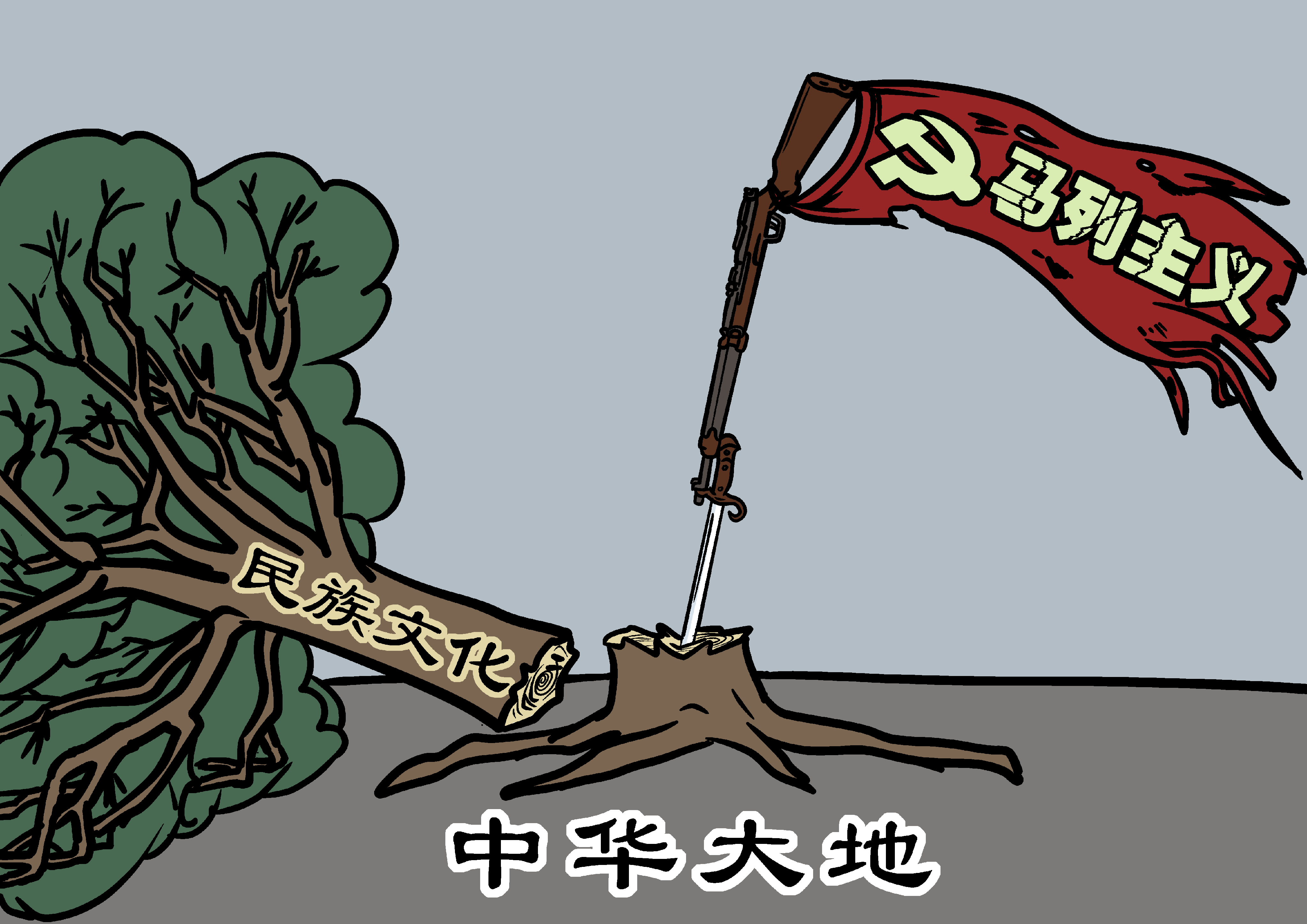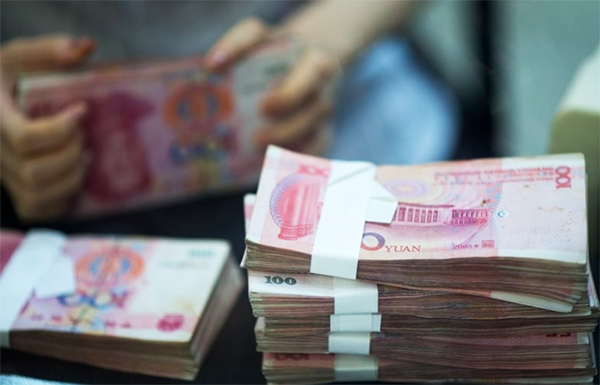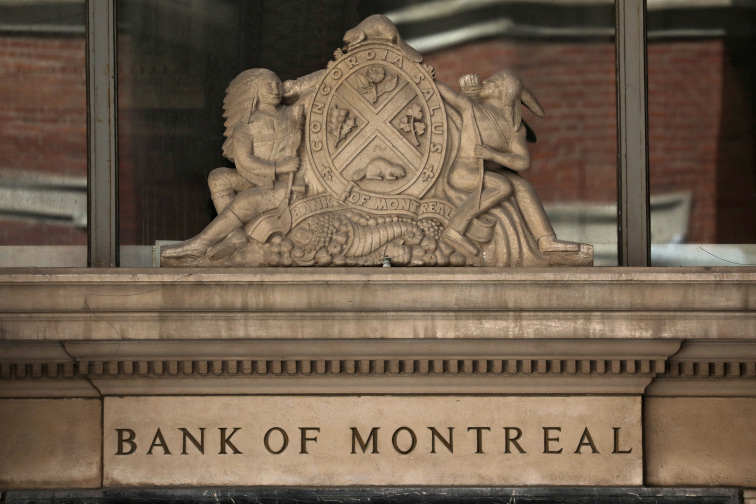(Illustration provided by Dajiyuan)
[People News] In recent years, many intellectuals across various age groups have passed away due to illness or pandemics. A primary reason, as observed, is their unwillingness to distance themselves from the Chinese Communist Party (CCP) or their active support for it. Falun Gong founder Mr. Li Hongzhi has long stated that current pandemics "are meant to eliminate members of the evil party and those who align themselves with the CCP." Anyone who has joined the CCP or its affiliated organizations is considered a part of it and thus at risk of elimination. This explains why many kind-hearted Falun Gong practitioners have tirelessly encouraged Chinese people to renounce their CCP memberships.
However, many continue to ignore these warnings, with predictable consequences. According to recent reports from mainland Chinese media, on the afternoon of January 20, 2025, Tu Keguo, former head of the Shandong International Confucianism Research Institute, passed away in Jinan after unsuccessful medical treatment for an illness. He was 64 years old.
Tu Keguo held numerous prestigious titles throughout his career. He served as Director of the Shandong Academy of Social Sciences’ Confucianism Research Institute (2003–2009) and its Cultural Research Institute (2009–2019). He was also the Director of the Shandong Social Science International Confucianism Research and Exchange Center, a second-tier researcher, and Vice President of the China Practical Studies Association, Shandong Confucius Society, and Shandong Philosophy Society. Additionally, he was a council member of the International Confucian Association and an executive council member of the China Human Studies Association. He was recognized as a high-level expert in Shandong Province's think tank and was a recipient of the State Council's special government allowance.
Given his extensive list of titles, it is evident that Tu Keguo made significant contributions to Confucianism research, producing numerous books and articles. However, Tu also maintained close ties with the CCP, aligning himself with its official agenda.
According to available information, Tu Keguo led or participated in over 30 national and provincial-level projects. These included serving as the lead researcher for the National Social Science Fund project "The Influence of Confucianism on Human Development" and completing key tasks for the CCP's Ministry of Foreign Affairs, such as "The Essence of Traditional Chinese Culture and Public Diplomacy." Other notable projects he led included "The Fundamental Framework of Socialist Ideological and Moral Systems" and "Research on China’s Cultural Soft Power," commissioned by the Central Propaganda Department.
Tu’s other works included provincial projects such as "Confucian Ethical and Philosophical Thought and Contemporary Chinese Moral Construction" and "Research on National Cultural Soft Power." One of his notable publications, "The Theory and Practice of Traditional Chinese Harmonious Society," received a positive endorsement from then-Deputy Secretary of the Shandong Provincial Party Committee, Jiang Daming. His main authored work, "Six Major Projects for Shandong’s Cultural Industry Development," was praised by Li Qun, former Standing Committee Member of the Shandong Provincial Party Committee and Propaganda Minister. These contributions earned Tu numerous accolades. He was included in Shandong Province’s "Top 100 Talent Program" and recognized as an academic leader in the provincial social science planning bases for "Ethics and Spiritual Civilization Construction" and "Philosophical Theory Innovation and Development." His work "Advocating the Spirit of Kong Fansen" won the Central Propaganda Department’s "Five-One Project Award."
Tu believed that traditional culture evolves with the times. A media profile once described him as follows: “In his work, Tu Keguo not only promoted traditional cultural ideas but also continuously refined his own thinking by seriously studying and internalizing the Party’s history, principles, and policies. He consciously armed himself with the Party’s theoretical knowledge, actively applied advanced ideas and scientific development theories in practice, and engaged in self-criticism to transform his worldview.”
Following CCP General Secretary Xi Jinping’s 2014 speech at the International Academic Conference commemorating Confucius’ 2565th birthday—where Xi emphasized the “creative transformation and innovative development” of traditional culture—Tu aligned closely with the Party’s agenda.
At a seminar in Qufu, Shandong, on November 25, 2019, Tu joined other prominent scholars in lauding Xi’s speech, referring to the “Two Establishments” policy as a new frontier for Marxist cultural theory with Chinese characteristics.
In his remarks, Tu stated: “The ‘Two Establishments’ policy continues our Party’s consistent advocacy of ‘making the past serve the present and innovating by discarding the outdated.’ It deeply integrates these principles with the demands of the new era, offering a comprehensive summary of the fundamental essence of socialist culture with Chinese characteristics. It articulates a scientific approach to excellent traditional Chinese culture in the modern age. The ‘Two Establishments’ policy serves as the foundational principle for inheriting and developing traditional Chinese culture and as the key to correctly understanding it in the new era.”
However, one might question whether Tu and others fully understood the broader context. The moral decline and widespread societal issues in modern China are rooted in the CCP’s destructive influence. By adhering to Marxism-Leninism—an ideology based on materialism, atheism, and class struggle—the CCP has systematically dismantled traditional Chinese culture since its establishment in 1949. It has replaced faith and moral values with Marxist doctrine, forcibly instilling this ideology through media and education. As a result, the Chinese people have become increasingly distanced from their cultural heritage, which emphasized reverence for heaven, harmony between man and nature, and ethical principles.
The CCP’s relentless efforts to undermine its own nation’s culture stem from the fundamental incompatibility between Marxism-Leninism and traditional Chinese values. This contradiction has been clearly articulated by columnist Zhou Xiaohui in the Epoch Times article, "Marxism-Leninism and Traditional Chinese Culture Are Fundamentally Incompatible."
Firstly, traditional Chinese culture places a profound emphasis on reverence for heavenly mandate. Confucius believed that “life and death are decreed by fate, and wealth and honor lie with Heaven.” Buddhism and Taoism are theistic, emphasizing the cycle of life and death and the principle of karmic retribution. In contrast, Marxism-Leninism and the Communist Party promote atheism and a belief in “no law, no heaven,” asserting that there is no “savior” and that salvation lies only in oneself. Acknowledging theism, therefore, directly challenges the legitimacy of the Communist Party’s rule.
Recent research has revealed that the “five great mentors” of communism—Marx, Engels, Lenin, Stalin, and Mao Zedong—believed in deities in their early years. However, they ultimately embraced Satan’s anti-God ideology, committing to use communist theory to destroy humanity. Their primary goal was to eradicate faith in deities, thereby severing people’s connection to divine protection. This explains the large-scale suppression of religion by the Soviet and Chinese Communist regimes after coming to power.
Secondly, Chinese traditional culture emphasizes “harmony between heaven and man,” believing that those who act in accordance with divine will can ascend to heavenly realms after death. Buddhism, for instance, regards everything in the world as a result of karmic retribution and opposes senseless killing. However, The Communist Manifesto claims that “communism” is the real “heaven on earth,” achievable only through the Communist Party’s leadership and violent struggle. Mao Zedong even declared, “Struggle against heaven, struggle against earth, struggle against people—endless joy.” Without faith in deities or belief in karmic retribution, the Marxist worldview glorifies violence and lawlessness, embedding a culture of oppression, fear, and bloodshed through relentless propaganda and education.
Confucian culture values family, advocating filial piety and rituals, while Marxism-Leninism explicitly calls for the “abolition of the family.” The licentious private lives of the “five mentors” of communism, along with widespread cases of wife-swapping, incest, and concubinage among high-ranking officials in the Soviet Union and China, are indicative of this ideology’s impact on familial decay.
Moreover, Confucianism champions virtues such as benevolence, righteousness, propriety, wisdom, fidelity, loyalty, filial piety, integrity, and courage. It emphasizes “benevolence toward others.” Conversely, Marxism-Leninism advocates for class struggle, fostering conflict between groups through violence and dictatorship of the proletariat. Under Lenin, Stalin, and Mao, countless disasters occurred in the Soviet Union and China, resulting in millions of deaths. According to The Nine Commentaries on the Communist Party, over half of China’s population has suffered persecution under the CCP, with an estimated 60 to 80 million unnatural deaths—surpassing the combined death tolls of the two World Wars.
Confucianism also emphasizes loyalty to the ruler and love for one’s country, but this loyalty is not blind—it is bound by the heavenly mandate, even requiring emperors to adhere to moral principles. In contrast, The Communist Manifesto advocates for the “abolition of the nation-state.” Lenin betrayed his country to seize power, and the CCP has repeatedly sold China’s interests and territories to the Soviet Union, exemplifying this principle.
The CCP’s allegiance to Marxism-Leninism has driven its systematic destruction of traditional Chinese culture. It has crushed the spirit of intellectuals who carried forward cultural heritage and indoctrinated society with Marxist ideology. Without this cultural eradication, the CCP’s rule would crumble if people continued to believe in Confucianism, Buddhism, and Taoism.
Under Marxist guidance, the CCP has intensified its use of violence and deceit, oppressing the good and committing unprecedented atrocities such as the public trade of harvested human organs. The scale of its shamelessness is beyond words.
As such, the CCP, which subscribes to the “specter of Marxism,” is a parasite on the land of China. It does not love China or its traditional culture but instead is a historical criminal responsible for betraying Chinese civilization.
To restore traditional Chinese culture and morality and realize the vision of “law ensuring order and virtue enriching hearts,” one must not follow the CCP’s path. Instead, it is essential to eradicate Marxism-Leninism and the Communist Party altogether. Tu Keguo and others, having become deeply entangled with the CCP, lost the ability to discern right from wrong. Their long-standing support for the CCP resulted in significant karmic debt, ultimately leading to their demise. A tragic end, indeed!
(First published by People News)











News magazine bootstrap themes!
I like this themes, fast loading and look profesional
Thank you Carlos!
You're welcome!
Please support me with give positive rating!
Yes Sure!